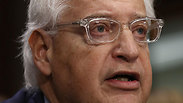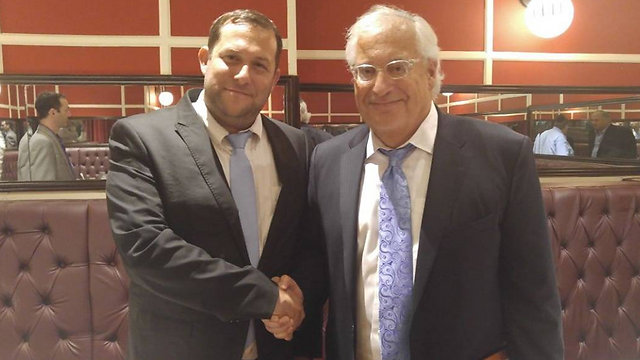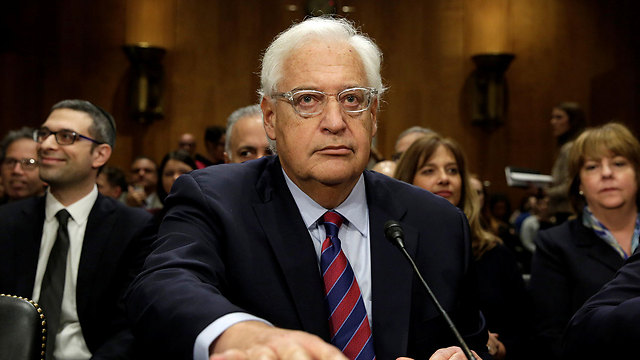
US Senate confirms Trump nominee to be Israel envoy
Friedman, who has no diplomatic experience, is a long-time friend of Trump who worked for the Republican former New York businessman as a bankruptcy lawyer. Friedman, aligned with the Israeli right, faced highly unusual amount of opposition.
The vote was 52 to 46, almost exclusively along party lines.
Only two Democrats, Senators Robert Menendez and Joe Manchin, joined Trump's fellow Republicans in backing Friedman.
That amount of opposition is highly unusual for a nominee for US ambassador to Israel, a close ally of the United States. For decades, nominees from both Democratic and Republican presidents have been approved without objection, via unanimous consent or voice votes.
Friedman, who has no diplomatic experience, is a longtime friend of Trump who worked for the Republican former New York businessman as a bankruptcy lawyer.
In addition to investing in settlements on land claimed by the Palestinians, Friedman favors moving the US embassy from Tel Aviv to Jerusalem. The relocation is strongly opposed by many US allies because both Israel and the Palestinians claim the city as their capital.
Friedman is also known for using inflammatory language against those with whom he has political disagreements, such as describing former President Barack Obama as anti-Semitic.

Democrats said his approach could risk security in a volatile region.
"Our ambassador should not be the kind of person who uses language to fuel violence, hate, instability," Democratic Senator Brian Schatz said on the Senate floor before the final confirmation vote.
Trump's selection of Friedman reflects his shift in policy toward Israel after years of friction between Obama and Israeli leader Benjamin Netanyahu. Unlike Obama, Trump has wavered on the US commitment to a two-state solution, long a bedrock of Washington's Middle East policy, and backed the embassy's relocation.
When Friedman was approved by the Senate Foreign Relations Committee, also largely along party lines, Republican Senator Bob Corker, the panel's chairman, praised him as an "impassioned advocate" for strong US-Israeli ties.
"He understands the complexity of issues at stake for the United States and the necessity to support a democratic ally in an important and unstable part of the world," Corker said.
Thursday's vote meant that Trump will have an ambassador in place in time for next week's annual conference in Washington of the powerful pro-Israel lobbying group AIPAC.











